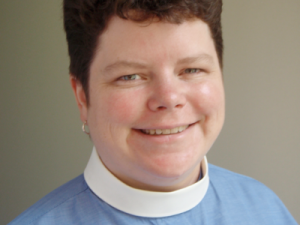By Rev. Dr. Carla E. Roland Guzmán
The use of Latinx is transgressive and liberative!!!
Why does the Latinx Roundtable uses Latinx (LRT)? Language matters. Language not only describes our understanding of the world about us, but language can also shape our reality. Although I am a Latinx person from Puerto Rico, I often talk about coming out in “English,” and one way this is reflected is in how LGBTQ language in Spanish sounds “negative” to me, but I have no problem with queer language in English. Language can hold a deep emotional space for many people. Yet, using language, even language that is initially uncomfortable, can lead to changes in our perception of that language – it can recover language for empowerment and liberation. Language can also be transformative.
Language matters and can be a powerful tool for justice. Over the past few years the label “Latinx” (pronounced “la-teen-ex”) has been increasingly used as a pan-category for the broad communities included under Latino/a, Latin@, and Hispanic. The term is used both in academic circles and in grassroots initiatives. It is above all a subversive and transgressive use of language that goes beyond the colonial designations of “Spanish origin, Hispanic, or Latino.” Chicano/a, now Chicanx, has always had this subversive quality.
There has never been a universal agreement about the use of pan-categories in the United States, such as Hispanic or Latino, let alone the use of Latino/a or Latin@, especially for those that see this solely as a grammatical issue. The use of Latino/a was a recognition that the grammatical convention that the “masculine” in Spanish is inclusive of the “feminine” is not enough given the long-standing oppressive systems that have kept women “down,” over decades and centuries. In the Spanish-language (and English also) writing in an inclusive manner, even just as inclusive of male and female, takes intentionality and work. It can be done, but often people are not willing to take the time to change the written and spoken patterns that give priority to the masculine or binary.
The work we do with the LRT and at CLGS aims to make sure that all LGBTQ+ persons can see themselves as important parts of faith communities and included in our understanding of God and the breadth of God’s creation. This requires a continual work of paradigm shifts. Therefore, since we now have a broader understanding of gender that goes beyond a binary understanding of male and female, we have to allow for a spectrum of identity; we need to find ways to be more expansive. Latinx accomplishes this in both English and Spanish.
Writing and speaking in an inclusive and expansive manner is not easy, but only becomes easier and more fluid by doing it. Try it, and you’ll begin to notice all around you the ways reality has been shaped by masculine and heteronormative images, and by you changing the way you write and speak you are changing the world for all to be included and affirmed.



